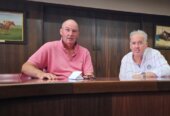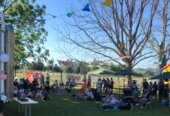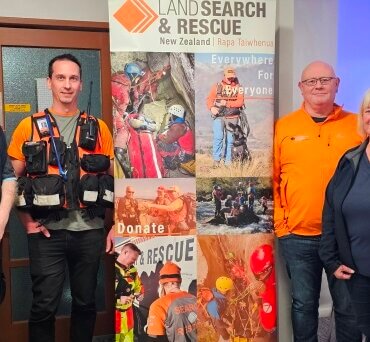
Community Patrol presentation
Urban search operations are becoming increasingly vital in Waipā, especially for locating vulnerable individuals such as those with dementia, autism, or at risk of suicide.
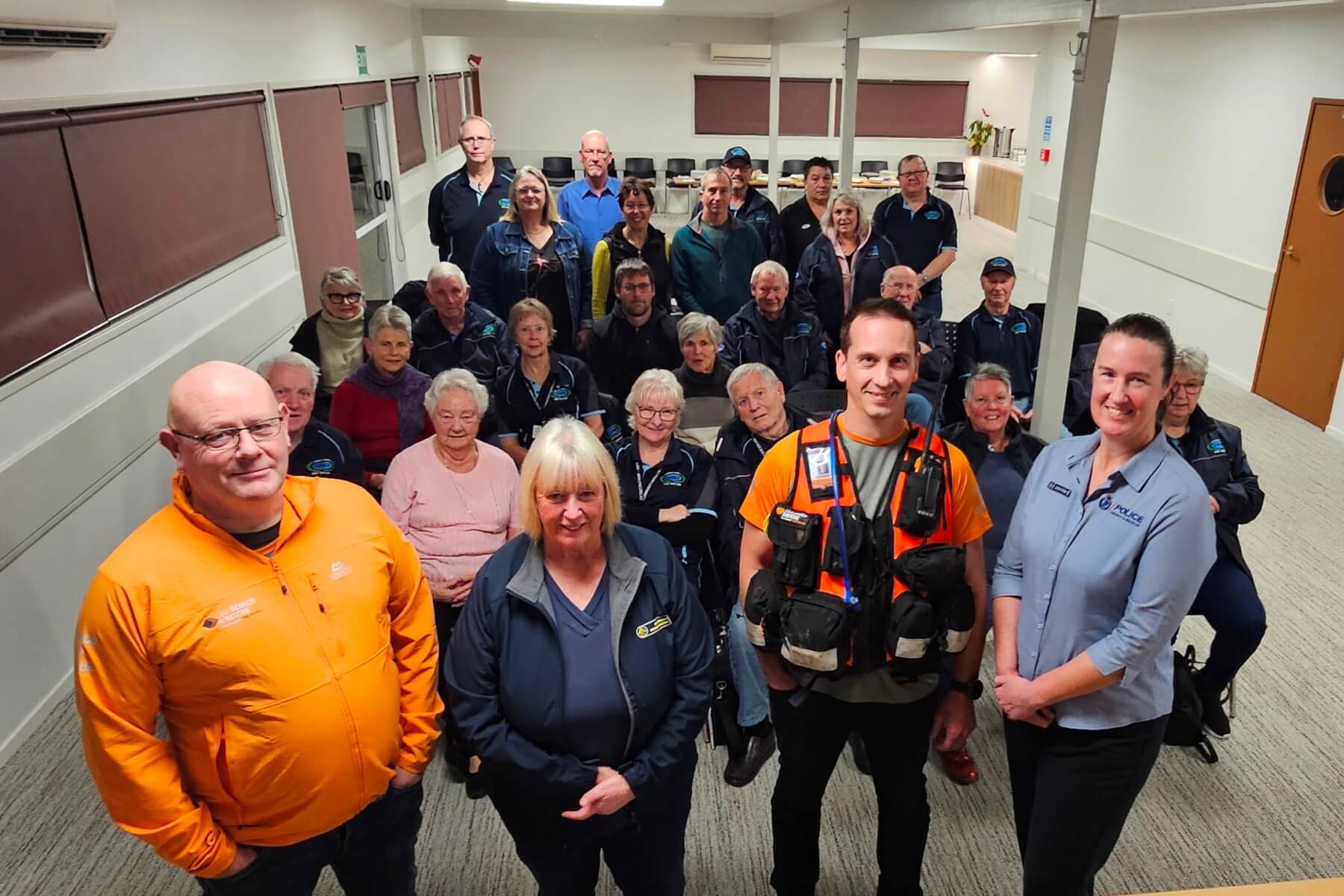
Urban search techniques with, from left: Kip Mandeno, Cathie Shaw, Aarad Russell and Lynette Horn with members of the Cambridge Community Patrol team in the background. Photo: Mary Anne Gill
In response, Cambridge Community Patrol has partnered with several organisations to enhance their search and rescue capabilities through specialised training.
The volunteer group, which already plays a vital role in local safety, has participated in several recent search operations. This prompted training officer David Morey to organise a dedicated urban search and rescue training session.
Recognising the need for specialised training, the team gathered on a cold winter’s night when most people were at home in the warm, these community stalwarts, Neighbourhood Support and the Safer Communities Trust met at Taylor Made in Cambridge to hear from Waikato Search and Rescue about urban search techniques.
Neighbourhood Support Community Engagement lead Eileen Hawkins said the patrol provided a cornerstone of security by working closely with police and private security firms to extend the town’s safety net.
“Their tireless efforts and willingness to learn and adapt make them an invaluable asset to the community,” she said.
The team is one of the few patrols in the country to operate seven nights a week into the early morning and attend regular training to ensure they maintain a high standard.
During the event Waikato Search and Rescue experts Lynette Horn, Aarad Russell and Kip Mandeno provided insights into the behavioural patterns of missing persons – particularly those with dementia, intellectual disabilities, autism, and children.
“These insights are proving increasingly vital, as the patrol is often called upon to assist in locating vulnerable individuals who may be wandering due to illness or emotional distress,” said Hawkins.
The training emphasised the importance of data-driven strategies to narrow search areas and improve outcomes.
Morey said Cambridge’s ageing population has led to a rise in dementia-related incidents.
“The goal of this training is to equip our patrol with the skills to conduct planned searches and utilise our resources in a coordinated manner.”
Participants also received an introduction to the WanderSearch beacon tracking system.
Cambridge Police have one receiver and three more are in Hamilton.
“These units are crucial for tracking missing persons equipped with a beacon. Gaining a basic understanding of this unit will significantly increase our patrol’s confidence when called upon to deploy it,” he said.
Civil Defence’s Cathie Shaw spoke on the need for the patrol team during large scale emergencies. Members assisted Civil Defence during the Covid pandemic.
Cathie Shaw from Civil Defence spoke about the patrol’s role during large-scale emergencies. Members previously assisted during the Covid pandemic, supporting the operation of welfare centres that provide essential services such as clothing, transport, financial aid, and temporary accommodation.
“This integrated approach ensures that affected individuals receive comprehensive care to assist them during the critical first week of recovery,” said Hawkins.
The evening concluded with a Heart Safe presentation on cardiopulmonary resuscitation (CPR), delivered by Henry Strong from Heartsafe Cambridge – reinforcing the patrol’s preparedness to respond to a wide range of emergencies.
The evening highlighted the strong spirit of collaboration and shared learning opportunities that underpins Cambridge’s community safety efforts, she said.
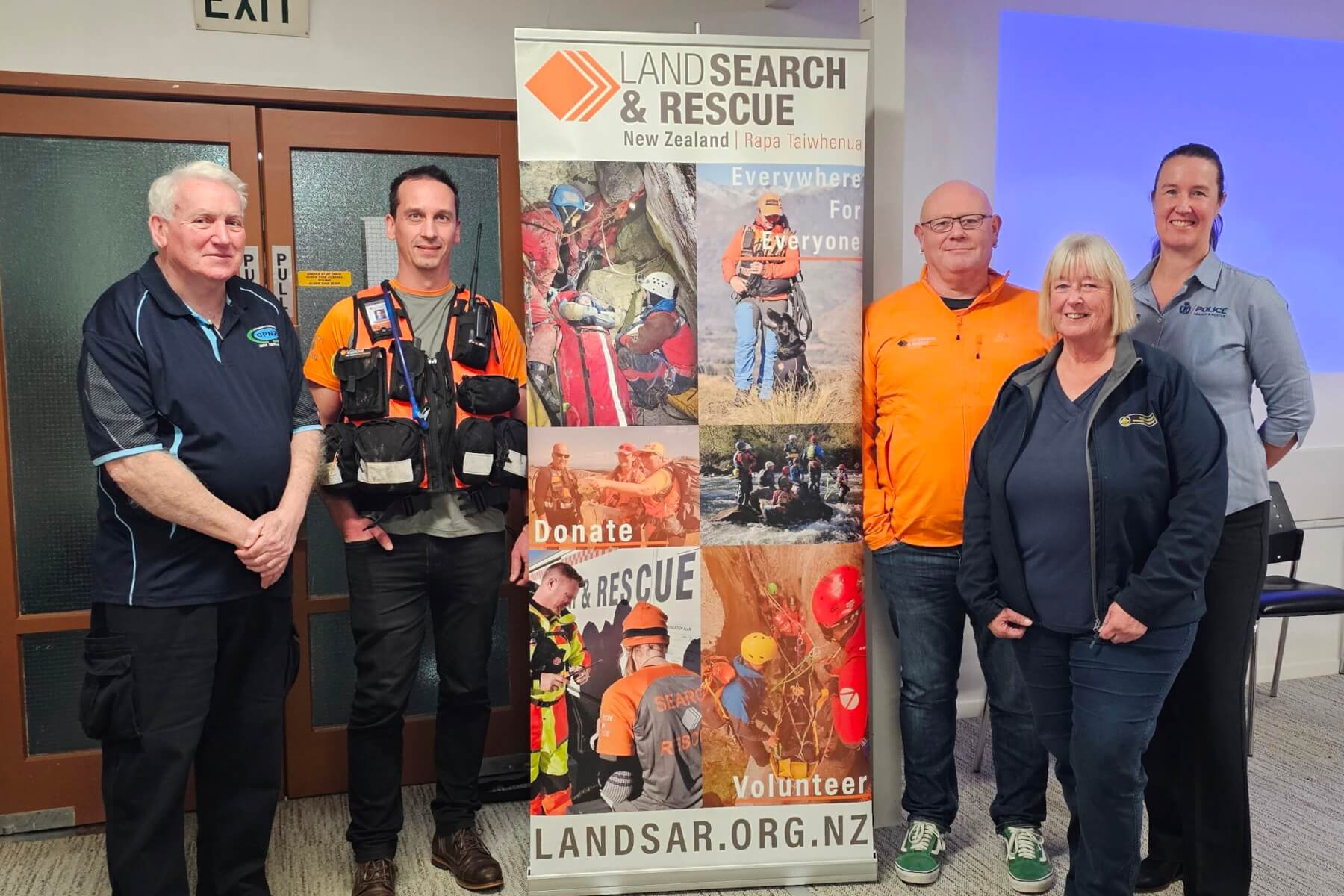
Learning how it’s done from the experts, from left David Morey, Aarad Russell, Kip Mandeno, Cathie Shaw and Lynette Horn. Photo: Mary Anne Gill





